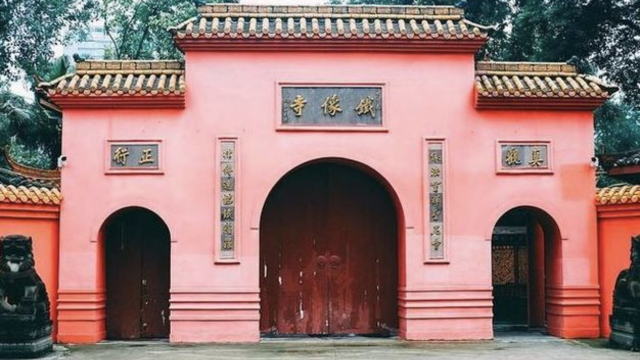The CCP continues its campaign of demolishing Christian symbols, as the authoritarian regime perceives them as a threat to its rule.
Ever since the State Administration of Religious Affairs sent an inspection team to the eastern province of Shandong in May 2019, nearly all the crosses have disappeared from its Christian venues. According to some calculations, between March 2019 and January 2020, the crosses of at least 70 churches have been demolished in Shandong’s Linyi, the largest prefecture-level city in the province.
“Crosses damage the state’s image.”
The European-style Three-Self church in Linyi’s Tancheng county, built at the cost of over one million RMB (about $ 140,000), has lost its cross some time ago. On November 18, the county government also ordered to remove the cross base because the church was “too close to the national highway” and “too tall,” which may seem “unpleasant” for provincial government superiors, who were due for a visit. The officials threatened to demolish the church building if its preacher disobeyed, so he had no choice but to destroy the base at the cost of over 20,000 RMB (about $ 2,800). The Western-style church windows were covered with iron sheets.
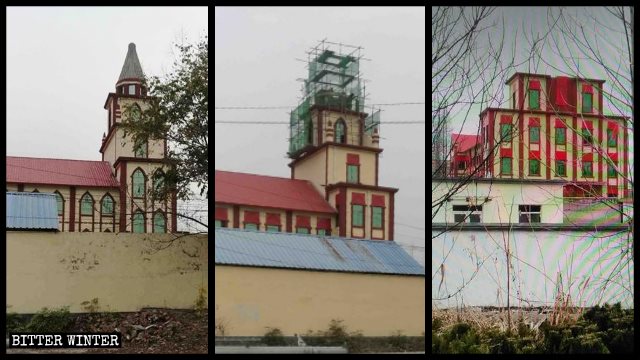
“It’s the central government’s policy to demolish crosses, prohibit minors from entering churches, and ban donation boxes. No one dares to disobey,” an elderly congregation member said helplessly. “This church was built with our donations, and now it has been changed beyond recognition.”
On January 8, the provincial government ordered to remove the cross of a Three-Self church near the high-speed rail in the Lanshan district, claiming that “it was too eye-catching.” The Chinese characters for “love” and “Christian Church” on the outside wall were also removed.
On May 16 last year, an official from LanLing county warned the preacher of a Three-Self church that no crosses could be near national highways. “Your church’s cross is so visible, it damages the state’s image,” the official said, directing workers to demolish the cross.
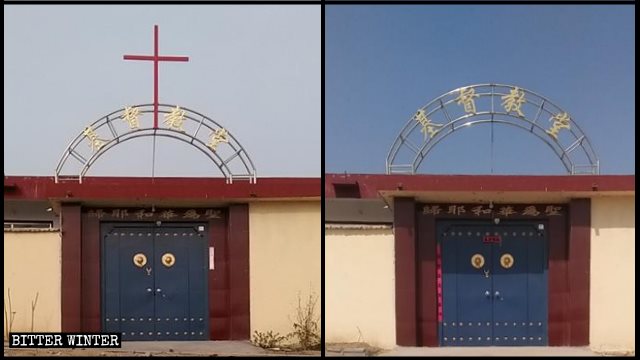
“The government is committing crimes, just like bandits, harassing people because they have power,” a church co-worker said with anger. He also revealed that after an official who used to be in charge of the demolition of crosses in the eastern province of Zhejiang has been transferred to Linyi, people of faith in the area have been subjected to more severe crackdowns. Between 2014 and 2016, crosses have been removed from more than 1,700 churches in Zhejiang, home to one of the largest Christian populations in China.
Local officials threatened to be dismissed
A Three-Self preacher from Tancheng county’s Shengli township never expected that her son would be the one to remove the cross from her place of worship. On April 1 last year, her son, who is the CCP secretary in one of the villages, shared the news that, as ordered by higher-ups, village officials would be held personally accountable if any crosses remain in their jurisdiction. So, he threatened to arrest his mother if she did not demolish the cross. The preacher watched helplessly as the cross was removed by the workers her son dispatched.
Between March and May, crosses have been removed from more than 40 Christian venues in Tancheng county: three from house churches and the rest from Three-Self venues.
“The CCP can demolish crosses, but they cannot stop our will to follow God. He is always in our hearts,” an elderly Three-Self Church member said.
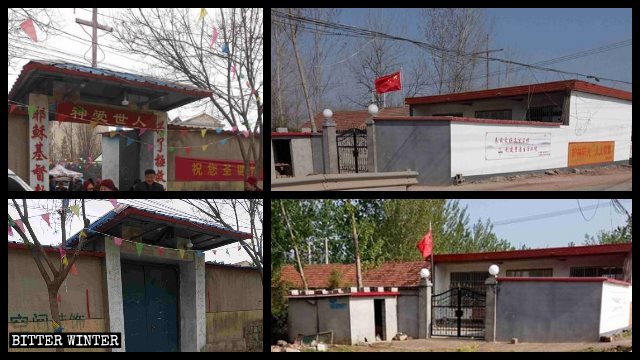
In May, a United Front Work Department official from Linyi’s Junan county ordered workers to saw off the cross on a Three-Self church and build a mast for the national flag in front of the building. He claimed that “the cross can’t be higher than the national flag.” If it is, he continued, “it will attract more people to religion.”
In early June, the Gaoxin district government ordered the residents of one of its villages to demolish crosses and remove all other religious symbols from Christian meeting venues. Within less than one month, 14 places of worship lost their crosses.
The cross was removed from a venue in the Gaoxin district of Linyi:
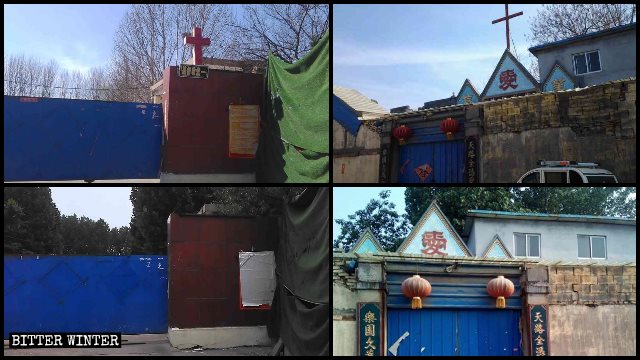
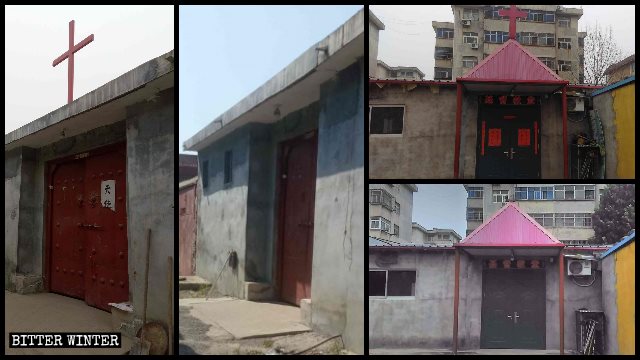
Source: Bitter Winter










